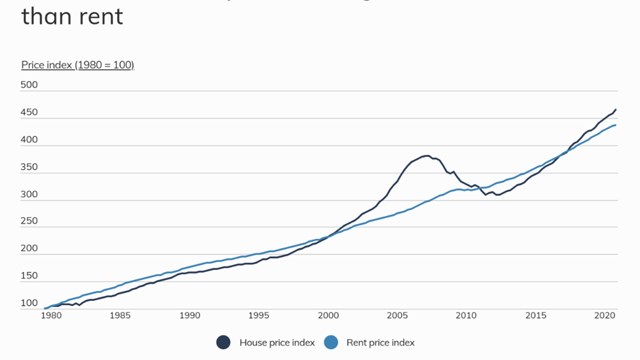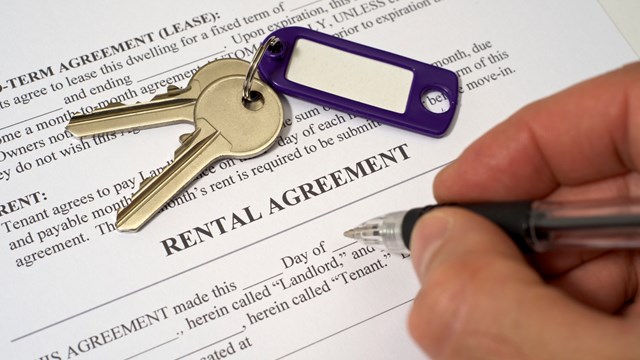
When a long-time renter purchases a co-op or a condo apartment, the move is perceived as a step up. No longer are you just shelling out rent every month—you're building equity, investing in your own security. Regardless of whether your new home is a co-op or a condo, you have a stake in maintaining your building—and by implication, your neighborhood.
Sometimes however, this new reality—being a property owner, as opposed to a renter—doesn't quite sink in. All too often, a co-op or condo unit owner doesn't see much of a day-to-day difference between owning and renting. After all, aren't monthly maintenance fees pretty much the same as rent? Aren't the board members and the managing agent essentially landlords? They collect the money and enforce the house rules, right?
This sort of viewpoint, while common, contributes to many of the problems board members and managers report when trying to run their buildings: apathy among residents, us-vs.-them animosity toward boards and managing agents, and a weak sense of personal responsibility for the well-being of the building and its community as a whole.
The Renter's Mentality
"Rent" may be a four-letter word, but it doesn't have to be a dirty one—the dichotomy between renters and owners isn't cut-and-dry by any stretch of the imagination, and many renters are every bit as conscientious about their buildings as any owner. Many city-dwellers recall the "old neighborhoods" of the 1950s and '60s whose rental tenants made a fetish of cleanliness, took enormous pride in their buildings and admonished children for hanging out in the lobby or loitering on the stoop.
According to Tasia Pavalis, a former board member at the Salem House condo on East 81st Street in Manhattan, "We have renters who have been here forever, since before the building was a condo, who care deeply about the building. We have investment owners [who rent out their apartments] who just see it as a way of making money; and we have resident owners who really care about the place."
There are even some renters today who understand when rent has to be increased because the landlord's expenses have increased. Conversely, a resident who has a negative attitude and breaks rules is a problem, of course, regardless of what type of building they live in.
However, for good or for bad, when one mentions a "renter mentality," the meaning is fairly clear—and the connotation isn't especially positive.
The feeling is that renters have a lower expectation of their residence and its upkeep because they don't plan to be there forever. Repairs, maintenance and day-to-day stewardship are the responsibility of the landlord or the building super; they're not the renter's problem.
An article from Business Week last year, "Housing Prices Stronger Than You Think," suggests that people who complain about the high price of the housing market just have a "renter's mentality" and will "never own anything," and an article in New England's Bay Weekly from June 2005 defines a "renter's mentality" as one that "puts a premium on short-term economic benefits against long-term capital investments. That mentality makes it difficult to envision, never mind plan for, a brighter future."
David Day is a real estate broker with Prudential Douglas Elliman and the former board president of two buildings—one a co-op and one a condo. He believes that there are different attitudes when it comes to renters and owners: "The rents today are so high, and the person who is renting pays a broker's fee and aggressive rent, so he feels he has to get a 'pound of flesh' from the landlord. He's probably not as nice to the property as someone who owns it."
An Investment in the Property
Ownership, of course, is different in many ways from renting. For example, the property can be leveraged against one's income. You get a mortgage interest deduction on your taxes. With a few notable exceptions—such as city- or state-subsidized developments—you can also sell the apartment for profit. So, in a condo or co-op building, there is an incentive to improve your apartment—for example, putting in a new kitchen cabinet to increase the unit's value.
By contrast, says Robert Braverman, an attorney specializing in co-op/condo law with Manhattan-based Braverman & Associates, no matter how good a tenant a renter is, "When they leave, only the landlord will benefit, because the rent goes up." True, a tenant theoretically gets interest on his or her security deposit when he or she leaves, but in today's world, many tenants feel lucky if they get their security deposit back, period.
Rosemary Paparo, a property manager with Buchbinder & Warren in Manhattan, addresses another aspect of the unit owner/tenant dichotomy: "The thing shareholders know at the end of the day is that the cooperative corporation has to operate in the black. If there's a shortfall in any expenses, whether capital or operating, it will come out of the shareholder's pocket."
By contrast, the renter is fixed to the amount specified in the lease. Day, who owned his own realty firm for 35 years before joining Prudential Douglas Elliman, sums it up by saying, "Rental and ownership are two different vehicles."
If a building has enough unit owners who "act like renters," in the understood sense, the building may not be as maintained as well as it should be. The roof, the elevators, the heating and cooling systems, the laundry room may begin to develop problems. And that's bad news for the condo or co-op, because it could lead to a special assessment or an increase in the common expenses—and that's a bitter pill to swallow, regardless of what side of the renter/owner equation you happen to be on.
Communication is Always Important
To help shareholders or unit owners recognize their responsibilities to their building or development, it's important to make the building's governing documents publicly available. In a co-op, these include a proprietary lease, bylaws and house rules. Condo owners have no proprietary leases—most all have conditions, covenants and restrictions (CC&Rs) and they do have elaborate bylaws. Many buildings, says Braverman, give out a set of rules and regulations to each new unit owner who comes into the building.
Also, all of those interviewed for this article have agreed, it is important to keep the lines of communications open, whether by publishing a newsletter or maintaining a website, distributing the minutes of meetings, or putting notices under residents' doors.
"Most boards try to keep their shareholders and unit owners informed,' says Paparo. "A brief newsletter should be published once or twice a year. I really encourage people to participate on different committees."
"When we were getting ready for Local Law 11 [inspections]," says Pavalis, the former board president, "we tried to explain what was going on in an informational meeting, and made some amendments to our bylaws."
In addition to the usual annual meetings, boards can also call informational meetings to tell people about improvements and quality-of-life issues. "This way," says Braverman, whose law firm represents more than 100 co-op corporations and condo associations, "people feel they are being kept in the loop."
Of course, renters don't have to form a board, serve on committees, go to meetings, vote for officers and so forth. Some large rental developments have tenants' organizations, but these are strictly voluntary. Put in this context, the low attendance at annual board meetings, the difficulty in getting owners to serve on committees, and the tendency of many residents to throw flyers and newsletters in the trash without reading them may well be seen as a continuation of the "renter mentality."
Any effort a board can make to break through the apathy and "not-my-problem" attitude of their shareholders' "rental mentality" will be a step toward improving the administration and sense of community in their building. The more co-op and condo unit owners go to building meetings, vote in board elections and volunteer to serve on committees, the more they are developing a true cooperative mentality and moving away from the us-vs.-them, landlord-tenant position.
Getting to that point is often an uphill battle, several people interviewed for this article agreed, and it's often a thankless task. In some condo and co-op developments, boards have resorted to holding raffles and giving out gifts to ensure higher attendance at meetings.
"It's not an easy job," says Pavalis. "There are so many different personalities, different interests. It's difficult to get people to really care."
Are all these issues basically the same in a condo and a co-op? Day says, "Ownership in a condo is a lot freer. There are fewer restrictions, but there are rules that reflect the building's way of thinking." Incidentally, the condo building for which he served as president, 340 East 64th Street, was the first building in the city constructed as a condo development, in 1965.
In a co-op, says Paparo, the shareholder-board relationship does in certain ways resemble the tenant-landlord relationship—in some documents, the shareholder is actually referred to as the "tenant shareholder." In a condo, she adds, "You have a deed, your own thing, but you still have a relationship [with the building as a community]."
Braverman sums up the legal differences and similarities between the landlord-tenant relationship and the board member-shareholder relationship in similar terms.
"The board member-shareholder relationship is technically a landlord-tenant relationship," he says. "There's a lease between the co-op corporation and the shareholder. That's one layer of the relationship. The biggest distinguishing factor is a board of directors that owes fiduciary duty to the shareholders."
So, when a former renter buys an apartment, he or she must often go through a transition period, learning the do's and don'ts of unit ownership. Fortunately, the manager, the board and other owners can serve as a resource to help that person adjust. In the end, it's to everyone's benefit to have shareholders understand and appreciate their stake in the building they call home, and to take an active, dynamic role in making that home the best it can be.
Raanan Geberer is a freelance writer and editor living in New York City.






Leave a Comment